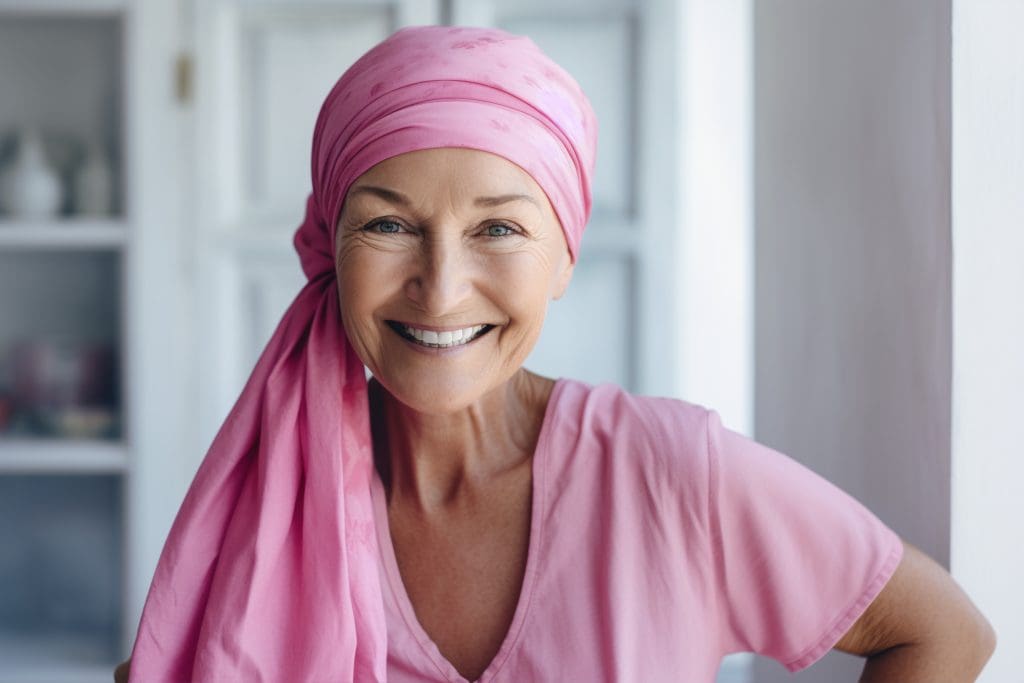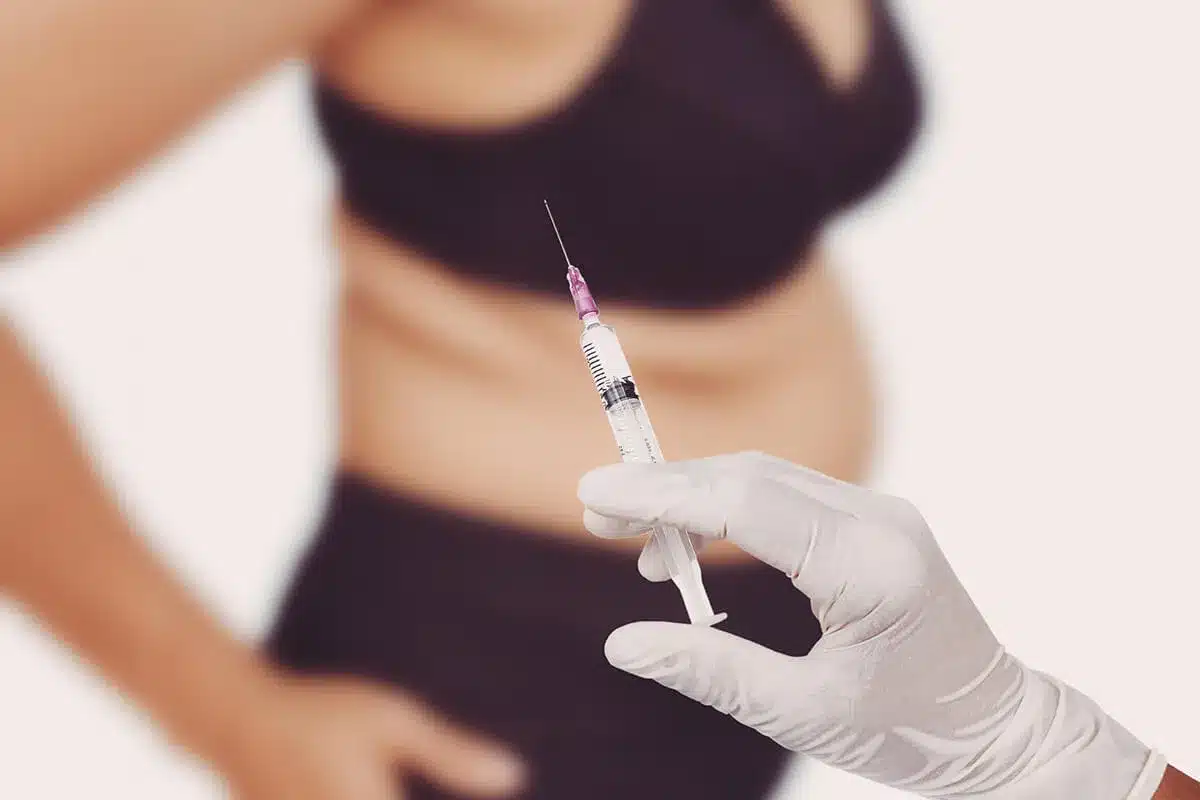How does breast cancer affect your life? Did you know that 1 in 8 women will get breast cancer in their lifetime? This fact shows how common and impactful the disease is.
The effects of breast cancer go beyond physical health. They also touch on emotional and social well-being. Living with breast cancer means dealing with treatments, emotional changes, and life adjustments at work and home.
This article will look at how breast cancer can affect someone’s life. We’ll see the challenges and the strength that helps people through this tough time.
Key Takeaways
- Understanding the broad impacts of breast cancer on an individual’s life.
- The importance of emotional and social support during diagnosis and treatment.
- Strategies for coping with the physical changes and challenges.
- Navigating the changes in personal and professional life post-diagnosis.
- The role of resilience and support in recovery and survivorship.
Understanding Breast Cancer: An Overview

Breast cancer is a complex disease that affects millions globally. It happens when abnormal cells grow out of control in the breast. Knowing about breast cancer is key for early detection and treatment.
What is breast cancer?
Breast cancer starts when cells in the breast grow wrong and form a tumor. It can happen in different parts of the breast. The disease can either spread to other parts of the body or stay in the breast.
Key facts about breast cancer include its widespread nature and the need for early detection. Studies show that finding it early can greatly improve survival chances.
Common types of breast cancer
There are several types of breast cancer, each with its own traits. The most common types are:
- Invasive ductal carcinoma, which starts in the milk ducts and grows to nearby tissues.
- Invasive lobular carcinoma, which begins in the lobules and spreads to nearby tissues.
- Ductal carcinoma in situ (DCIS), a non-invasive condition where cells are contained in the milk ducts.
Risk factors and prevalence
Risk factors for breast cancer include genetic mutations, family history, age, and lifestyle. Knowing these risk factors helps in assessing personal risk and taking preventive steps. Recent data shows breast cancer is a common cancer among women worldwide, stressing the need for awareness and education.
The high prevalence of breast cancer underlines the importance of ongoing research into its causes and treatments. By understanding risk factors for breast cancer, people can make better health choices.
Initial Diagnosis: The First Impact
Getting a breast cancer diagnosis is a tough moment. It can make you feel many emotions. It’s a time of big change and uncertainty about what’s next.
Processing the News
Learning you have breast cancer can be hard. People often feel overwhelmed and unsure about their future. Getting support from family, doctors, or support groups is key during this time.
It’s important to take time to think about the diagnosis. Everyone reacts differently. There’s no single way to handle the news.
Immediate Emotional Responses
When you first hear you have breast cancer, you might feel shocked, scared, or anxious. These feelings are normal. It’s okay to feel them and start healing.
Research shows the news can make you feel very emotional. It’s hard to process or make decisions. Having people to support you can help.
First Steps After Diagnosis
After finding out, start by understanding your diagnosis and what treatments you can get. It’s good to ask questions and maybe get a second opinion.
Building a support network and making a treatment plan are important first steps. This plan should fit your specific needs.
- Learn about your diagnosis and treatment choices.
- Build a support network of family, friends, and healthcare professionals.
- Think about getting help from a mental health expert if you need it.
By taking these steps, you can start to feel more in control. You can face the challenges ahead.
Physical Effects: How Breast Cancer Affects the Body
Breast cancer has many physical effects, from symptoms in one area to changes all over the body. It’s important for patients to know these effects to deal with their diagnosis and treatment.
Primary Symptoms and Physical Changes
Breast cancer can show up in different ways, like a lump or changes in the breast or underarm. It can also cause changes in breast size or shape, and skin issues like dimpling or redness. These symptoms can be scary and affect how a person sees their body.
- Lump or Thickening: A palpable mass in the breast or underarm area.
- Changes in Breast Size or Shape: Swelling or shrinkage of the breast.
- Skin Changes: Dimpling, redness, or scaliness of the skin.
Systemic Effects Throughout the Body
Beyond just symptoms in one area, breast cancer and its treatment can affect the whole body. This can include feeling tired all the time, changes in weight, and issues with the lymphatic system.
| Systemic Effect | Description |
| Fatigue | A persistent feeling of tiredness or lack of energy. |
| Weight Changes | Gain or loss of weight due to treatment or the cancer itself. |
| Lymphatic System Impact | Swelling or lymphedema due to surgery or radiation affecting lymph nodes. |
Pain and Discomfort
Pain is a big issue for many with breast cancer. It can come from the tumor, surgery, or treatments like chemotherapy or radiation. Finding ways to manage pain is key to care.
Pain management strategies include medicines, therapies like acupuncture, and changes in lifestyle. These can help reduce pain and improve life quality.
Treatment Journey and Its Challenges
Breast cancer treatment is complex, including surgery, chemotherapy, and radiation. Each treatment has its own challenges. The journey varies for each patient, based on cancer type and health.
Common Treatment Options
Patients with breast cancer may face different treatments, such as:
- Surgery: Like lumpectomy or mastectomy, to remove the tumor and affected tissue.
- Chemotherapy: To kill cancer cells that may have spread.
- Radiation Therapy: Targets and destroys cancer cells in the breast and chest.
- Hormone Therapy: Blocks the body’s natural hormones for hormone-positive cancers.
- Targeted Therapy: Targets specific cancer cell characteristics.
A renowned oncologist, says, “Treatment choice depends on cancer stage, health, and patient preferences.” Plans are often tailored and may combine these options.
Treatment Schedules and Time Commitment
Breast cancer treatment can be long, with many sessions over weeks or months. Chemotherapy is given in cycles with rest periods. Radiation therapy is daily, Monday to Friday, for weeks.
Managing treatment schedules needs careful planning. The healthcare team, including doctors and nurses, must coordinate. Patients should keep a treatment calendar to stay organized.
Managing Treatment Side Effects
It’s key to manage breast cancer treatment side effects to keep quality of life high. Common side effects include fatigue, hair loss, nausea, and skin changes. Ways to manage these include:
- Rest and relaxation to fight fatigue.
- Scalp cooling to reduce hair loss during chemotherapy.
- Medications to control nausea and other side effects.
- Skin care routines to prevent radiation-induced skin changes.
One patient said,
“The support of my healthcare team and loved ones was invaluable in helping me navigate the challenges of treatment.”
This shows how important a strong support system is during treatment.
Surgical Interventions and Body Changes
Going through breast cancer treatment often means surgery. This can deeply change how a person sees their body. Surgery is key in treating breast cancer, with options based on the person’s needs and cancer type.
Types of Breast Cancer Surgeries
There are mainly two surgeries for breast cancer: mastectomy and lumpectomy. A mastectomy removes one or both breasts, depending on the cancer. A lumpectomy removes just the tumor and some tissue around it, keeping the breast.
- Mastectomy: This can be simple or radical, removing more tissue and lymph nodes.
- Lumpectomy: Often followed by radiation to kill any remaining cancer cells.
Physical Recovery After Surgery
Recovery from surgery varies by type. Expect some pain, swelling, and stiffness. Pain management is key, with meds to help with pain.
- Follow your doctor’s instructions to avoid complications.
- Start gentle exercises to get stronger and move better.
Body Image Challenges
Surgery for breast cancer can affect how you see yourself. Losing or changing a breast can make you feel less feminine or attractive. Support from healthcare providers, family, and support groups is important for coping.
“The journey through breast cancer and its treatment is not just about survival; it’s also about learning to live with the changes it brings.” –
A breast cancer survivor
Counseling and support groups offer emotional support and advice on body image issues after surgery.
Side Effects That Impact Daily Life
Managing side effects from breast cancer treatment is key to keeping daily life normal. These side effects can change how patients live, affecting their happiness and health.
Fatigue and Energy Levels
Fatigue is a big problem for many. It’s a tired feeling that doesn’t get better with rest. This makes simple tasks hard to do.
- Breaking tasks into smaller steps can save energy.
- Light exercise, like walking, can boost energy.
- Sticking to a sleep schedule helps fight fatigue.
Hair Loss and Skin Changes
Hair loss is tough for many. It can hurt how patients feel about themselves. Skin issues like dryness and rashes are common too.
To deal with these problems:
- Use soft hair care products and consider wigs or hats.
- Keep skin moist and avoid harsh products.
- Wear sunscreen and protective clothing to guard against the sun.
Cognitive Effects (“Chemo Brain”)
Many face cognitive changes, or “chemo brain.” This includes memory loss, trouble focusing, and feeling confused.
Ways to handle these changes include:
- Using a calendar or planner to stay on track.
- Doing activities that challenge the mind.
- Talking to doctors about these issues for help.
Understanding and tackling these side effects helps patients get through treatment better. It keeps their quality of life higher.
Emotional and Psychological Impact
Dealing with breast cancer is not just about the physical fight. It’s also about facing emotional and psychological hurdles. Getting a breast cancer diagnosis can make you feel shocked, scared, and anxious.
Anxiety and Depression
Many breast cancer patients struggle with anxiety and depression. The unknown future, fear of treatment results, and body image changes can weigh heavily. It’s key to acknowledge these feelings and seek help.
Coping with anxiety and depression requires professional help, support groups, and personal efforts. Therapists can offer cognitive-behavioral therapy (CBT) or other talk therapies to manage these issues.
Fear of Recurrence
Many survivors worry about breast cancer coming back. This worry can disrupt daily life, making you constantly anxious about the cancer’s return. It’s important to remember that this fear is common and can be discussed with healthcare providers or support groups.
Managing the fear of recurrence includes staying in touch with doctors, living a healthy lifestyle, and doing things that boost your mental health.
Coping Mechanisms and Mental Health Support
Dealing with breast cancer goes beyond medical treatment. It needs emotional and psychological support. Support groups, whether in-person or online, offer a sense of community and understanding.
- Mindfulness and meditation can help reduce stress and improve mental health.
- Journaling or expressing feelings through art can be therapeutic.
- Connecting with others who have experienced breast cancer can provide valuable support.
By recognizing the emotional and psychological effects of breast cancer and seeking support, patients can improve their quality of life. This makes navigating their diagnosis and treatment easier.
How Breast Cancer Affects Relationships
Breast cancer can deeply impact family, friends, and partners. The diagnosis and treatment can put a strain on relationships. Yet, with good communication, many find their bonds grow stronger.
Impact on Intimate Partnerships
Intimate relationships face big challenges during breast cancer treatment. The physical and emotional changes can affect a person’s libido and body image. Partners may feel left out, leading to isolation.
Counseling and support groups offer help for couples. They learn to be more empathetic and resilient together.
Changes in Family Dynamics
Breast cancer changes family life, mainly when kids are involved. Parents must adjust their parenting to fit their treatment schedule. It’s key for family members to understand the patient’s condition and help with care.
Maintaining routines and involving kids in care can make them feel secure. Family therapy helps meet everyone’s emotional needs.
Friendships During Cancer Treatment
Friends are a big support during treatment. They can help with errands and offer emotional support. Yet, friendships can change, with some growing closer and others drifting apart.
It’s important for patients to communicate their needs clearly to friends. This can keep friendships strong during treatment.
Work and Career Impact
Managing breast cancer treatment and work is a big challenge. A diagnosis can change a person’s job life a lot. This includes needing time off for treatment and thinking about new career goals.
Managing Work During Treatment
Patients might need to change their work schedules during treatment. This could mean taking time off, working less, or doing different job tasks. Talking to employers is important to make these changes work.
Here are some ways to manage work during treatment:
- Talk to your employer about flexible work options.
- Focus on the most important tasks.
- Get help from coworkers and supervisors.
Legal Protections and Accommodations
There are laws to help workers with breast cancer. The Americans with Disabilities Act (ADA) offers some protection. Even though breast cancer isn’t always seen as a disability, it might be covered under the ADA or other laws.
| Legal Protection | Description |
| Family and Medical Leave Act (FMLA) | Eligible employees get up to 12 weeks of unpaid leave for family and medical reasons, like breast cancer treatment. |
| Americans with Disabilities Act (ADA) | This law stops job discrimination against people with disabilities and requires work accommodations. |
Career Changes and Reprioritization
Breast cancer can make people rethink their careers. Some might switch jobs or work less to have a better life balance.
For those thinking about career changes, here’s what to do:
- Think about what’s important to you.
- Look into new jobs that match your values.
- Get advice from career advisors or mentors.
Understanding how breast cancer affects work and careers helps people deal with challenges. It lets them make smart choices about their jobs.
Financial Implications of Breast Cancer
It’s important for patients to know how breast cancer affects their money. The cost of treatment can be high, impacting not just the patient but their family too.
Treatment Costs and Insurance Considerations
The cost of breast cancer treatment changes based on the diagnosis stage, treatment type, and insurance. Patients often face extra costs like deductibles, copays, and coinsurance.
Average treatment costs for breast cancer can be from $60,000 to over $100,000 or more each year. This depends on how intense and long the treatment is. Insurance can help lower these costs, but patients need to know what their policy covers and what it doesn’t.
Lost Income and Work Disruptions
Getting diagnosed with breast cancer and going through treatment can mean losing income. This can hurt a patient’s financial health.
- Patients might need to take time off for surgery, chemotherapy, radiation, or other treatments.
- Some may have to work fewer hours or change jobs because of their condition or treatment side effects.
Resources for Financial Assistance
There are many resources to help with the financial stress of breast cancer. These include:
| Resource | Description | Potential Benefits |
| Patient Access Programs | Programs by pharmaceutical companies to help patients get medications at a lower cost or for free. | Lower medication costs |
| Non-profit Organizations | Groups like the Cancer Financial Assistance Coalition (CFAC) offer financial help and resources to cancer patients. | Financial grants, counseling |
| Government Assistance | Programs like Medicaid or Social Security Disability Insurance (SSDI) might be available to eligible patients. | Medical coverage, income support |
By understanding the financial impact of breast cancer and using available resources, patients can manage their treatment better. This can help reduce their financial worries.
How Breast Cancer Affect Varies Across Age Groups
Breast cancer affects people of all ages differently. This means we need support that fits each age group. The disease’s impact and experience change a lot with age.
Young Adults with Breast Cancer
Young adults with breast cancer face special challenges. They worry about their fertility, body image, and how it will affect their career and family plans. Getting diagnosed young is often a big shock.
Fertility concerns are a big deal. Some treatments can harm their ability to have children. Young adults might need to think about fertility preservation options before starting treatment.
Elderly Patients and Unique Challenges
Elderly patients with breast cancer have their own set of challenges. These include health issues, comorbidities, and complex treatment decisions. Their age and health can make treatment plans harder.
For elderly patients, treatment tolerance is key. They must weigh the risks of treatment against their quality of life. This helps decide the best course of action for them.
A study points out, “Older adults with breast cancer need care that considers their health, life expectancy, and wishes.” This ensures they get the right care for their situation.
Long-term Health Considerations
Managing health is key for breast cancer survivors. After treatment, they start a new care phase. This phase focuses on watching their health and dealing with treatment’s long-term effects.
Follow-up Care Requirements
Follow-up care is vital for breast cancer survivors. Regular check-ups and screenings catch early signs of recurrence or new cancers. Survivors should work closely with their healthcare team to develop a personalized follow-up care plan that includes:
- Regular mammograms and other imaging tests as recommended
- Physical exams to monitor overall health
- Discussion of any symptoms or concerns
Late Effects of Treatment
Breast cancer treatment can have lasting effects on a survivor’s life. These effects depend on the treatment type. Common late effects include:
- Cardiac issues related to certain chemotherapy drugs or radiation therapy
- Osteoporosis due to hormone therapy or certain chemotherapy agents
- Cognitive changes, often referred to as “chemo brain”
Knowing these possible late effects helps survivors manage their health proactively.
Risk of Recurrence or Secondary Cancers
The risk of breast cancer coming back or new cancers is a big worry for survivors. This risk depends on the original cancer type, treatments, and health factors. Survivors should discuss their specific risk factors with their healthcare provider to understand their situation better.
By being aware of these long-term health considerations, breast cancer survivors can manage their health. This helps reduce the risk of future complications.
Life After Treatment: The “New Normal”
Life after breast cancer treatment is a journey of healing and growth. Finishing treatment is a big win, but it’s just the start of a new chapter. This chapter needs adjustment and learning.
Emotional Adjustment
Adjusting emotionally after treatment can be tough. Survivors feel many emotions, like relief and joy, but also anxiety and fear. It’s key to recognize these feelings and get help when needed.
Coping Mechanisms: There are many ways to cope, like counseling, support groups, and mindfulness. These help deal with treatment’s emotional effects and keep a positive outlook.
Redefining Priorities and Life Perspective
Breast cancer survivors often see life differently after treatment. This change can make life more meaningful and rewarding.
- Reassessing Life Goals: Survivors might change their goals to focus on what’s truly important.
- Embracing Change: Accepting the changes from their experience can lead to growth and a new purpose.
| Aspect | Pre-Treatment | Post-Treatment |
| Life Focus | Daily routines and responsibilities | Personal growth and meaningful relationships |
| Emotional State | Anxiety and fear about diagnosis and treatment | Relief, mixed with anxiety about the future |
| Priorities | Surviving the disease | Thriving and enjoying life |
It’s important for survivors to understand and navigate life after treatment. This helps them find their new normal and live a fulfilling life.
Survivorship and Long-term Quality of Life
After beating breast cancer, survivors look for ways to keep living well. Survivorship is more than just staying healthy. It’s about feeling good emotionally and mentally too.
Survival Statistics and What They Mean
Knowing about survival stats is key for breast cancer fighters. The five-year survival rate shows how many people live five years after being diagnosed. About 90% of breast cancer patients live this long.
But, survival rates can change a lot. They depend on when the cancer was found and other things. It’s important for survivors to talk to their doctors about their own chances.
Finding Meaning After Breast Cancer
Finding purpose after cancer is a big part of getting better. Many survivors feel a new drive to live life fully. They might re-evaluate their priorities, get closer to loved ones, or try new things.
Meeting others who’ve been through the same thing helps a lot. Support groups offer a place to share feelings and find understanding. Some survivors also find peace in telling their stories through writing or speaking.
By focusing on living well after cancer, survivors can face life’s challenges with strength and hope.
Conclusion: Living Beyond Breast Cancer
Breast cancer changes lives, not just for the person diagnosed but also for their loved ones. This journey is filled with challenges, from the first diagnosis to the long road of recovery.
Surviving breast cancer means getting ongoing support to live a healthy, happy life. People must deal with the physical, emotional, and mental effects of their diagnosis. They need to make big changes in their daily routines and long-term plans.
Understanding the journey of breast cancer survival is key. It helps people manage the late effects of treatment and face the fear of cancer coming back. Finding new priorities and ways to see life differently is also important.
In the end, life after breast cancer is about finding a “new normal.” It’s about finding meaning and purpose despite the challenges. With the right support, survivors can live full lives. Their stories show the incredible strength of the human spirit.
FAQ
What are the common symptoms of breast cancer?
Symptoms include a new lump or thickening in the breast or underarm area. You might notice a change in the size or shape of the breast. Look out for dimpling or puckering of the skin, redness, or scaliness.
What are the treatment options for breast cancer?
Treatments include surgery, like mastectomy or lumpectomy. Chemotherapy, radiation therapy, hormone therapy, and targeted therapy are also used. Often, a combination of these is best.
How does breast cancer treatment affect daily life?
Treatment can lead to side effects like fatigue, hair loss, and skin changes. It can also affect your memory and mood. These changes can make everyday tasks harder, impact your job, and strain relationships.
Can breast cancer cause emotional and psychological distress?
Yes, it can lead to anxiety, depression, and fear of recurrence. These emotional challenges are common and need mental health support.
How does breast cancer affect relationships?
It can strain intimate relationships, family bonds, and friendships. Good communication, support, and understanding from loved ones are key.
What are the financial implications of breast cancer?
Treatment can be very expensive, leading to lost income and financial stress. But, there are resources available to help with these costs.
How does breast cancer affect different age groups?
Young adults and elderly patients face unique challenges. Younger patients may worry about fertility, while older patients may have other health issues.
What are the long-term health considerations for breast cancer survivors?
Survivors need ongoing care and monitoring for late effects of treatment. They also need to watch for signs of recurrence or secondary cancers.
Can breast cancer cause hair loss?
Yes, treatments like chemotherapy can cause hair loss. But, there are ways to manage it, like scalp cooling, wigs, or hair coverings.
How long can you live with breast cancer?
Survival rates depend on the stage, type, and treatment of the cancer. Many people live for years or even decades after diagnosis.
What is the survival rate of breast cancer?
The 5-year survival rate for breast cancer is about 90%. But, survival rates vary based on the stage and type of cancer.
Can stress cause breast cancer?
There’s no clear link between stress and breast cancer. But, chronic stress can harm your health and might affect cancer risk or progression.
What are the physical signs of breast cancer?
Look for a new lump, changes in breast size or shape, skin changes, nipple discharge, or other unusual symptoms. If you notice anything different, see a doctor.
How does breast cancer impact work and career?
A diagnosis can require work adjustments and might affect your career. But, there are legal protections to help you keep working.









